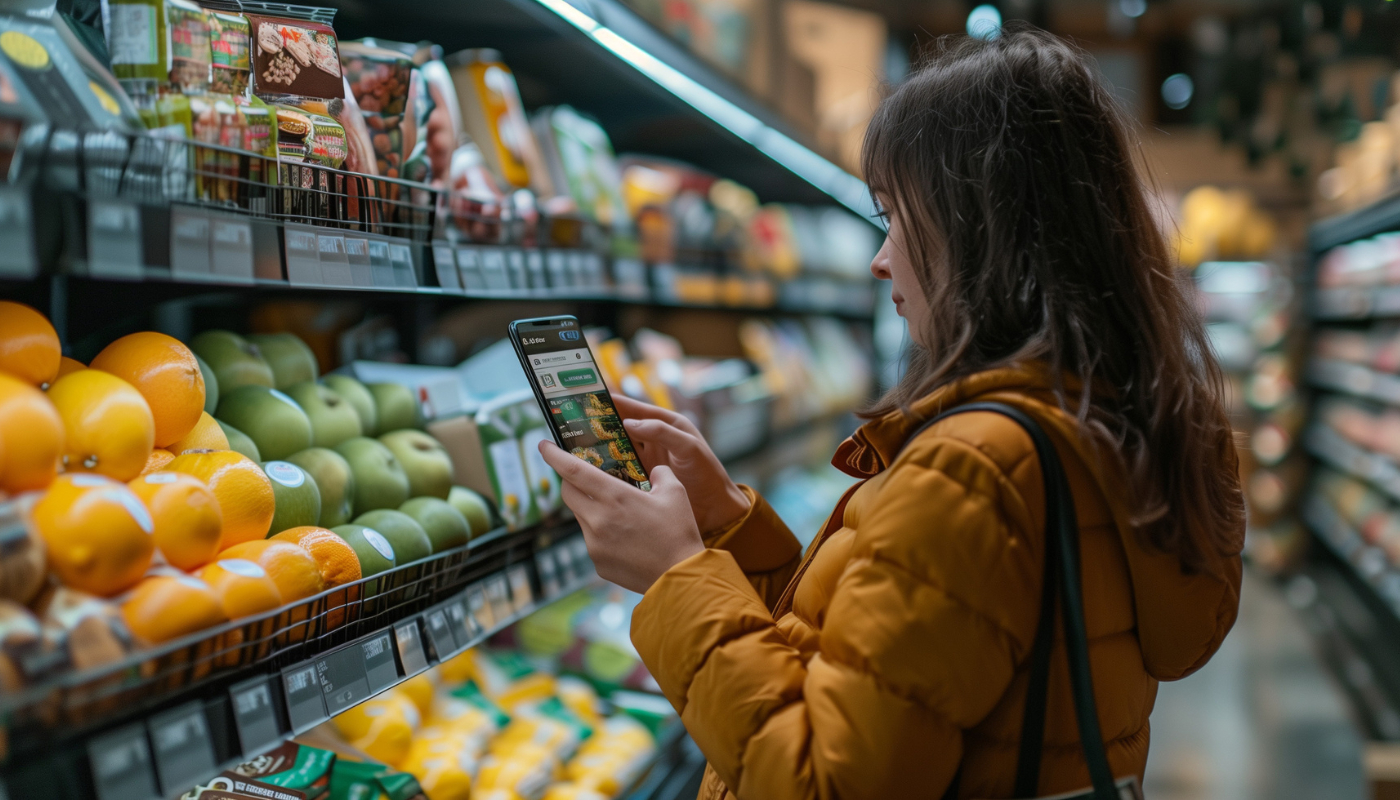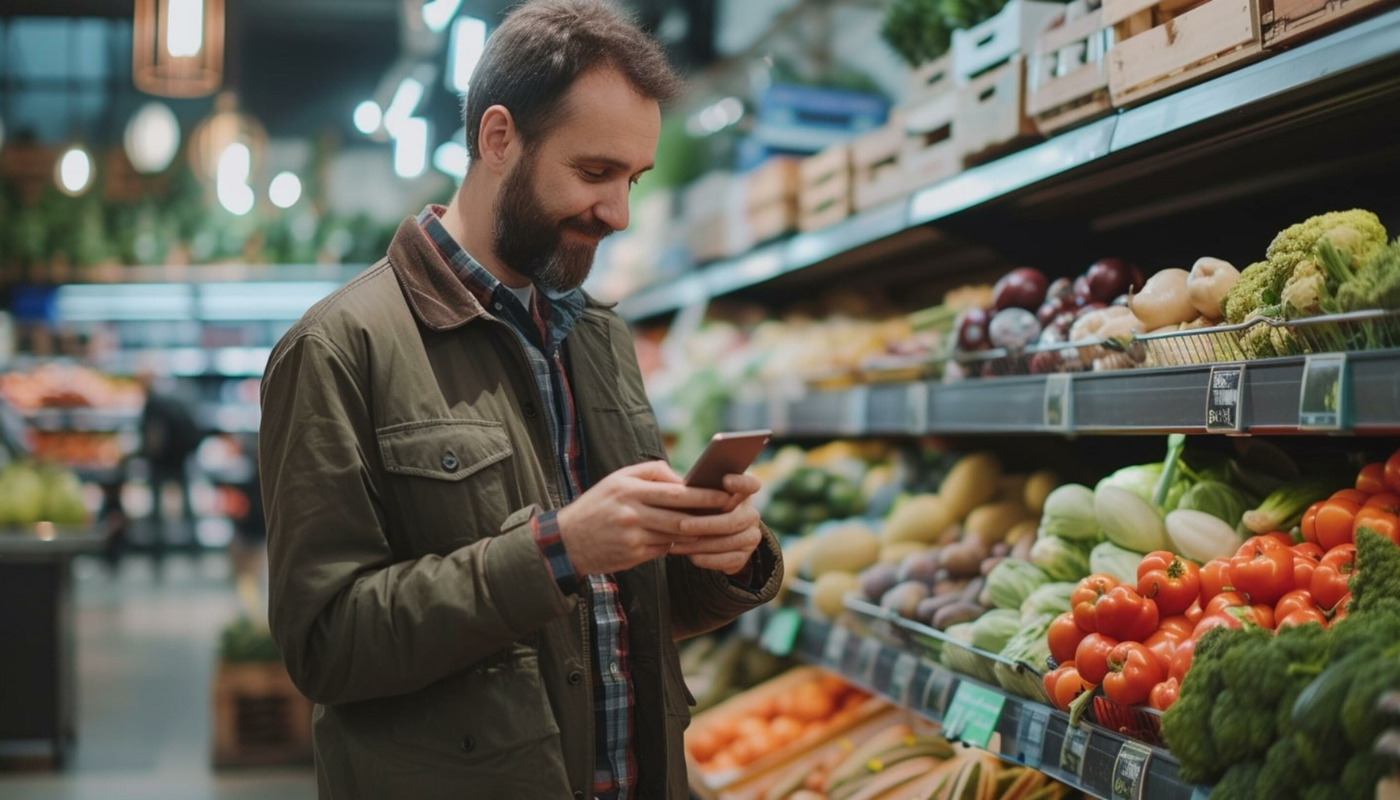Apps for analysing products - do they make grocery shopping easier?
Discover how food scanning apps simplify your grocery shopping by providing detailed product information instantly.
how to shop
Share

What is a food scanner app?
A phenomenon that is not going unnoticed is growing day on day, which is people in supermarkets with their phones in their hands, scanning the barcodes of products before buying them. These apps analyse food products, allowing the potential buyer to be more informed and aware of the product they are thinking of purchasing, and in turn, influencing the future consumer's purchasing decision.
How it works is simple: the consumer scans the barcode of the products using the camera on their mobile phone. The app then generates a simple record of the food, assessing the nutritional aspects of the food and indicating whether it’s healthy or not, and if the result is negative, the app recommends a similar but healthier product.
These nutritional food scanner apps are free to download to your smartphone and use different criteria to assess products, the most relevant of which are the nutritional value, the degree of processing or the additives they contain.
What are the most relevant food-checking apps?
The three apps most recognised by users and most successful so far are Yuka, El CoCo, which takes its name from ‘the Conscious Consumer’, and MyRealFood, led by the nutritionist, populariser and creator of the Realfooding movement, Carlos Ríos. The Organisation of Consumers and Users (OCU) analysed them to assess whether they really fulfil the purpose for which they were designed or whether they may mislead consumers. The organisation concluded that they can be a good tool, but offer ‘incomplete information’.
- Yuka: Prioritises ingredients, additives and organic products. It’s the first to break into Spain, where it already has 1.5 million downloads. It assigns a score from 0 to 100 to products based on three criteria. These are the nutritional quality obtained by analysing the ingredients using the Nutriscore method (represented by the colours of the traffic light), their risk level based on independent studies and, thirdly, whether it’s a product with the European organic label.
- ElCoCo: It focuses on the degree of processing and nutritional quality. This app, like Yuka, analyses the ingredients with Nutriscore (by colour). In addition, through the so-called Nova index, it measures the degree of processing of a product from 1 to 4, with 4 being the ultra-processed category.
- My Real Food: Ultra-processed foods are on their radar. Real food (fresh produce), well processed and ultra-processed (includes unhealthy ingredients) is the main classification of the products that this app analyses using ‘an adaptation of the NOVA system’, as well as providing nutritional information and warning with its system of black seals if a product is high in calories or sugars, for example.

Are these nutritional applications beneficial?
The problem with the use of these apps is that, if the criteria they use for analysis are not scientific and introduce variables that are not related to the nutritional quality of the product, consumers may reject perfectly healthy products, just because the app advises them to avoid them.
Far from helping to educate the consumer, the use of these apps can generate even more uncertainty and misinformation. These applications have food grading systems that may have areas for improvement, so caution should be exercised when interpreting the classification of certain types of products. For example, processed foods that are nutritionally adequate, such as canned fish, could be classified in the same way as a sugar-free carbonated beverage following the algorithms of these classification systems.
In conclusion, these apps have a great impact on mass consumption. They make it easier for consumers to make more informed purchasing choices, they create the habit of reading product labels before buying them, and they increase awareness of alternative products to those that are usually rated more positively.






